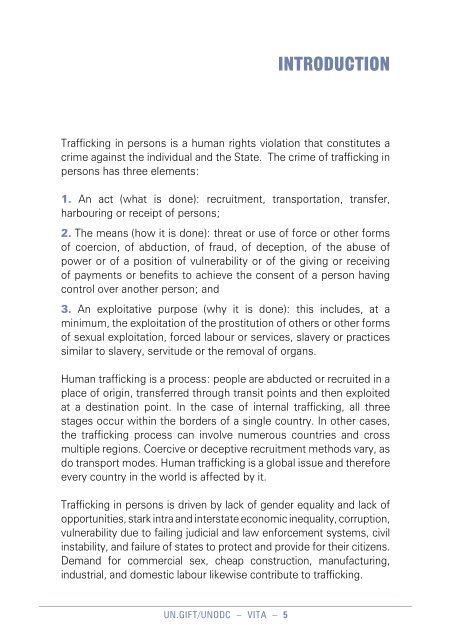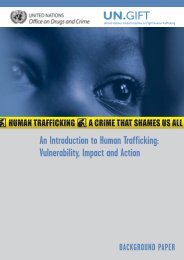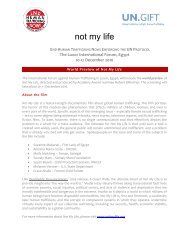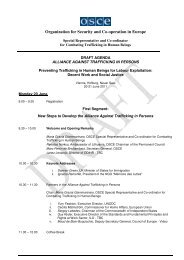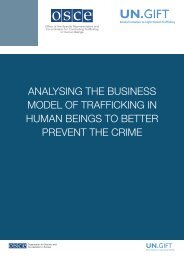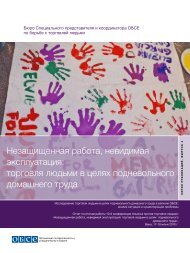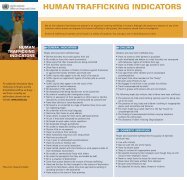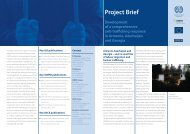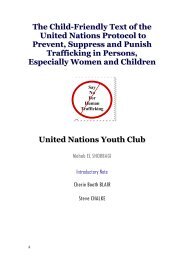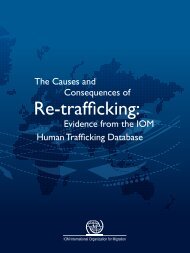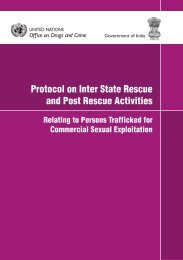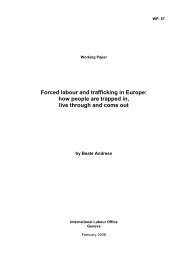Untitled - UN.GIFT.HUB - UN Global Initiative to Fight Human ...
Untitled - UN.GIFT.HUB - UN Global Initiative to Fight Human ...
Untitled - UN.GIFT.HUB - UN Global Initiative to Fight Human ...
Create successful ePaper yourself
Turn your PDF publications into a flip-book with our unique Google optimized e-Paper software.
Introduction<br />
Trafficking in persons is a human rights violation that constitutes a<br />
crime against the individual and the State. The crime of trafficking in<br />
persons has three elements:<br />
1. An act (what is done): recruitment, transportation, transfer,<br />
harbouring or receipt of persons;<br />
2. The means (how it is done): threat or use of force or other forms<br />
of coercion, of abduction, of fraud, of deception, of the abuse of<br />
power or of a position of vulnerability or of the giving or receiving<br />
of payments or benefits <strong>to</strong> achieve the consent of a person having<br />
control over another person; and<br />
3. An exploitative purpose (why it is done): this includes, at a<br />
minimum, the exploitation of the prostitution of others or other forms<br />
of sexual exploitation, forced labour or services, slavery or practices<br />
similar <strong>to</strong> slavery, servitude or the removal of organs.<br />
<strong>Human</strong> trafficking is a process: people are abducted or recruited in a<br />
place of origin, transferred through transit points and then exploited<br />
at a destination point. In the case of internal trafficking, all three<br />
stages occur within the borders of a single country. In other cases,<br />
the trafficking process can involve numerous countries and cross<br />
multiple regions. Coercive or deceptive recruitment methods vary, as<br />
do transport modes. <strong>Human</strong> trafficking is a global issue and therefore<br />
every country in the world is affected by it.<br />
Trafficking in persons is driven by lack of gender equality and lack of<br />
opportunities, stark intra and interstate economic inequality, corruption,<br />
vulnerability due <strong>to</strong> failing judicial and law enforcement systems, civil<br />
instability, and failure of states <strong>to</strong> protect and provide for their citizens.<br />
Demand for commercial sex, cheap construction, manufacturing,<br />
industrial, and domestic labour likewise contribute <strong>to</strong> trafficking.<br />
<strong>UN</strong>.<strong>GIFT</strong>/<strong>UN</strong>ODC – VITA –


